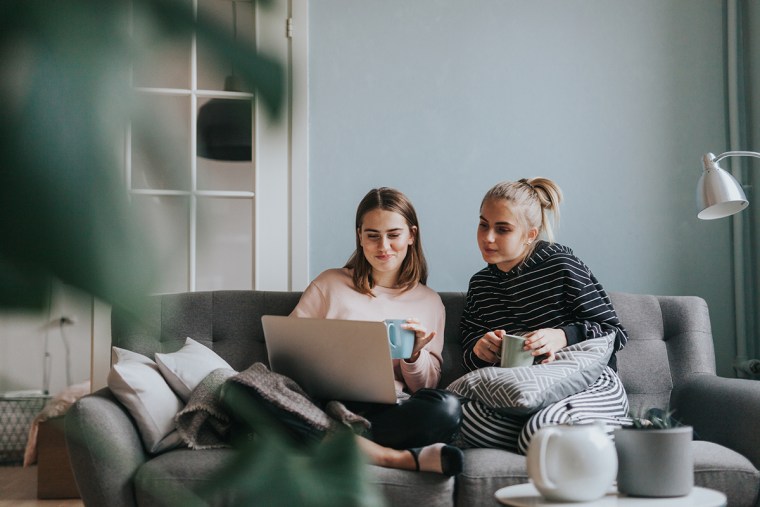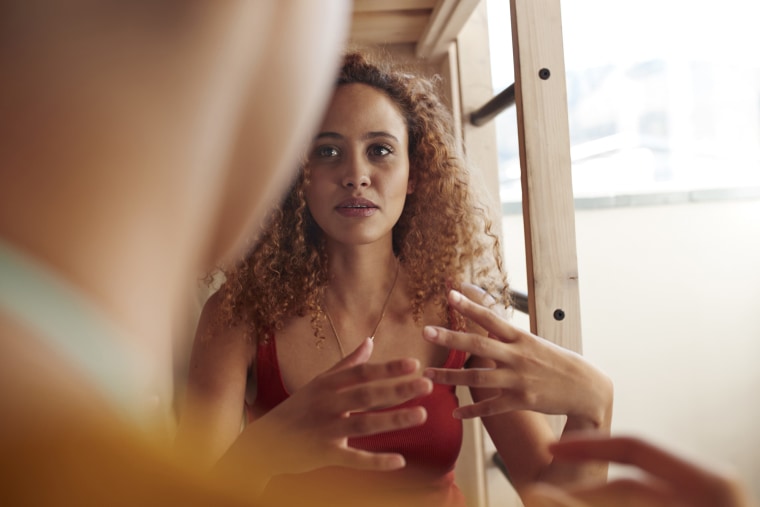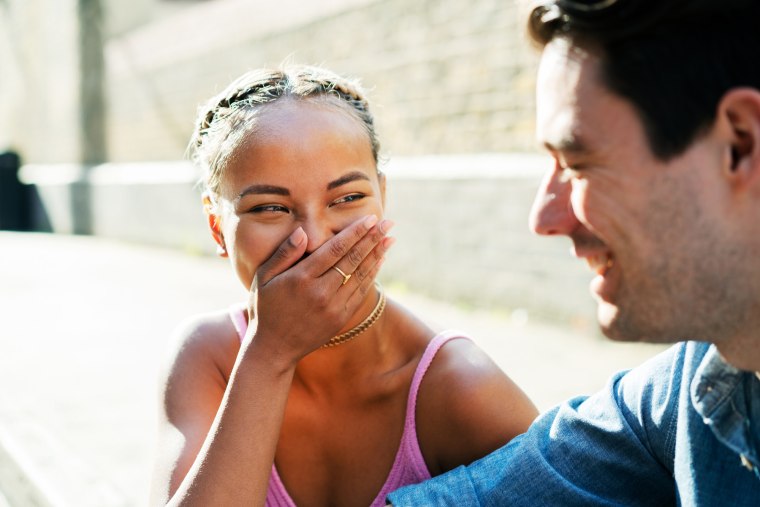Like many parts of our lives, friendships have been severely impacted by the pandemic. So many people missed out on small talk with office or church friends or acquaintances they'd see at parties. Many long-distance friends had to cancel their annual getaways or visits to see each other. Things definitely got shaken up, but it wasn’t all bad.
Shasta Nelson, friendship expert and author of "Frientimacy," told TMRW that the pandemic forced us to look at what types of relationships we lacked and needed, as well as what relationships we already had.
“Many of us got closer to fewer people, which is interesting because when we’re lonely, it’s not that we need to meet more people, we need to go deeper with a few and feel more seen,” she said.
“If I had to choose one over the other, I’d choose for people to have fewer closer friends where they feel supported, witnessed, loved and accepted,” Nelson added.
Of course, now that we’re more than a year into the pandemic, people’s schedules are getting busier again. The long phone calls with a best friend during lockdown, for example, are probably getting shorter and less frequent.
“I realistically expect some of that to drop down,” she said. “I like to say there will be a new normal.”
So, what might the new normal be when it comes to friendship? See below for six ways the pandemic has changed the way we interact with each other.
1. People feel more comfortable being vulnerable
The pandemic has been a rough time for everyone. People have lost loved ones and jobs, they’ve had to manage working from home while teaching their kids, they’ve missed out on weddings and reunions and so much more. Collectively, we have all been under a lot of stress, and it feels more comfortable being open and honest about it with friends.
“Vulnerability was given permission to be more present in our relationships,” Nelson said. “We all knew things were hard, and we were maybe more willing to talk about that than if we were going through a hard thing all by ourselves.”
She also noted that men sometimes opened up more with each other. “(Before the pandemic), men were more dependent on proximity and location,” she explained. But during lockdown, they had to decide which relationships were built on more context, and that in turn created a deepening of their friendships."
2. Technology has helped long-distance friendships thrive

When lockdowns happened, suddenly location just didn’t matter as much anymore. “We saw a lot of re-deepening with long-distance relationships,” Nelson said. “Before this, we didn’t want to be on the phone. But through calls, texts and video chats, long-distance friends were able to stay in touch and deepen their connections."
Nelson also said there was a big trend of people reaching out to former friends they haven’t talked to in a while. “When people who couldn’t go meet new people and felt lonely, their only option was to reconnect with someone.”
3. We were reminded we'll always need in-person acquaintances and small talk
While Nelson said she’d take quality over quantity any day when it comes to friendships, she also mentioned there will still always be a need for in-person socializing and small talk.
“If we know a couple of neighbors, we feel like we belong in the neighborhood,” she explained. “If we have a couple of colleagues, we feel like we belong at work. If we know parents at school, we feel more a part of that community. Wherever it is that we want to frequent in life, it’s also important that we have those acquaintances. They make us feel like we belong to those places.”
The pandemic showed us just how important these small interactions were to our lives, and hopefully it’s something we’ve learned to not take for granted.
4. Friendships and interactions got more intentional

Nelson said she hopes the pandemic taught us that we can’t just let friendships happen; they take work. “The people who intentionally reached out to people and scheduled an interaction are the people who came out of it way happier with their relationships,” she said. “They’re happier with family and friends, and they feel closer to people.”
Nelson also said she hopes the pandemic made people look at who they really want to invest in. “It’s the perfect time to be intentional going forward and not just do what you’ve done before.” Her advice is to make a list of friends who bring you happiness and give you support; the ones who you’d be sad not to have in your life six months from now.
“I think it’s really important to be clear where our energy is going,” she said. “Initiating, paying attention and prioritizing the people you want to be closer to is always step one.” She added that research shows women feel really stressed about how many people they have to stay in touch with. “We don’t have to stay in touch with everyone and we don’t have to make every relationship work. It’s OK to let some go.”
5. Friends have had to work around major differences

People have always had different views, but it seems like the last year has been especially polarizing. When friends post on social media about their opinions regarding current events and they don’t share the same perspective you do, it can definitely lead to tension.
Nelson said you can still be friends if that's important to you.
She suggests having a conversation with that person acknowledging that you have different views and asking what you can both do to protect your friendship. “We don’t have to have a solution — we just need to show our friends that we’re willing to talk about it,” she said.
Nelson said we also need to be gentle with our friends and ourselves regarding comfort levels. For example, one friend might want to go to a concert and the other might not be ready for that yet. “Our goal here is to communicate our desire to be with people in a way that does not leave them feeling judged,” she explained.
Her advice is to affirm the desire to be with them (for example, “I miss you!”), say what you can as gracefully as possible so they don’t feel judged (“I’m not feeling comfortable going to concerts yet, but I’m so happy for you”) and make an alternative plan.
“Our relationship won’t die because we didn’t go to that concert or bar together. Our relationship will be damaged because we are judged or are judging,” she said.
Related:
6. We’ve learned how much we need each other

“The articles on loneliness the past year have been so powerful because I think we’ve just ignored the subject and pretended that we didn’t have that need,” she said.
Nelson added that research has shown a quarter to a third of our population is feeling starving for people. “My hope is that now we all know how important connection is, those of us who have it can help think of ways to offer opportunities to others.”
Related:




